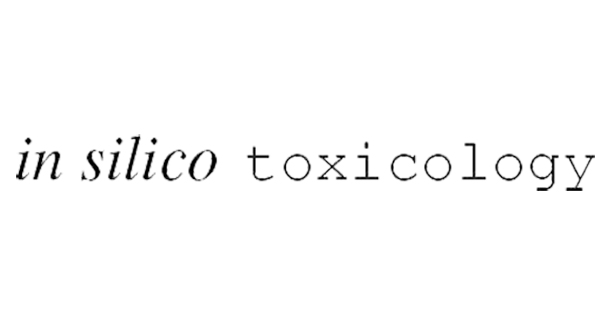 Christoph Helma established In Silico Toxicology GmbH as a spin-off company from the University Freiburg (Germany), that provides research, consulting and scientific programming services in the area of predictive toxicology. IST has developed the award winning lazar system (lazar.in-silico.de) for the prediction of toxic properties (currently available endpoints: rodent carcinogenicity, Salmonella mutagenicity, human liver toxicity, human maximum recommended therapeutic dose, skin-sensitization, blood-brain-barrier penetration, acute fathead minnow toxicity, biodegradability) and the fminer and last algorithms for supervised feature mining. IST develops and maintains OpenTox compatible web services (compounds, datasets, algorithms, models, authentication and authorisation, tasks) and web interfaces (www.toxcreate.org). All programs are available with source code under a GNU license and can be freely accessed from public web interfaces.
Christoph Helma established In Silico Toxicology GmbH as a spin-off company from the University Freiburg (Germany), that provides research, consulting and scientific programming services in the area of predictive toxicology. IST has developed the award winning lazar system (lazar.in-silico.de) for the prediction of toxic properties (currently available endpoints: rodent carcinogenicity, Salmonella mutagenicity, human liver toxicity, human maximum recommended therapeutic dose, skin-sensitization, blood-brain-barrier penetration, acute fathead minnow toxicity, biodegradability) and the fminer and last algorithms for supervised feature mining. IST develops and maintains OpenTox compatible web services (compounds, datasets, algorithms, models, authentication and authorisation, tasks) and web interfaces (www.toxcreate.org). All programs are available with source code under a GNU license and can be freely accessed from public web interfaces.
WP4 Deputy Leader. Descriptor Development, QSAR Model Building. Integrated Analysis. Model Validation and Reporting
IST has extensive experience with the organisation and management of research projects and industrial collaborations on a national and international level. It was WP leader in several EU funded projects (SCARLET, Sens-it-iv, OpenTox) and is currently WP leader in the ToxBank and ModNanoTox FP7 projects.
Dr. Christoph Helma is the owner of in silico toxicology gmbh. He received his Ph.D. in chemistry and a Masters in toxicology. His main research interest is the application of data mining techniques to solve real-world toxicological problems. He has more than 10 years’ experience in predictive toxicology research and has published more than 50 peer reviewed research papers. He was editor for the ‘Predictive Toxicology’ textbook and for special sections in ‘Bioinformatics’ and ‘Combinatorial Chemistry and High Throughput Screening’, invited speaker for major QSAR conferences and main organizer of the ‘Predictive Toxicology Challenge’. He developed and implemented the lazar program, that was awarded with the Research Price for Alternative Methods to Animal Experiments (German Federal Ministry on Consumer Protection, Food and Agriculture, 2005) and the Research Prize for Cancer Research without Animal Experiments (Doctors Against Animal Experiments, 2006). He will provide strong technical linkage between the proposed project and the OpenTox and ToxBank FP7 projects, whose infrastructure will be reused for the purpose of the current proposal.
|
1)
|
Claudia Suenderhauf, Felix Hammann, Andreas Maunz, Christoph Helma, and Jorg Huwyler. Combinatorial qsar modeling of human intestinal absorption. Molecular Pharmaceutics, 8(1):213-224, 2011. |
|
2)
|
Andreas Maunz, Christoph Helma, and Stefan Kramer. Efficient mining for structurally diverse subgraph patterns in large molecular databases. Machine Learning, pages 1-26, 2010. |
|
3)
|
Barry Hardy, Nicki Douglas, Christoph Helma, Micha Rautenberg, Nina Jeliazkova, Vedrin Jeliazkov, Ivelina Nikolova, Romualdo Benigni, Olga Tcheremenskaia, Stefan Kramer, Tobias Girschick, Fabian Buchwald, Joerg Wicker, Andreas Karwath, Martin Gutlein, Andreas Maunz, Haralambos Sarimveis, Georgia Melagraki, Antreas Afantitis, Pantelis Sopasakis, David Gallagher, Vladimir Poroikov, Dmitry Filimonov, Alexey Zakharov, Alexey Lagunin, Tatyana Gloriozova, Sergey Novikov, Natalia Skvortsova, Dmitry Druzhilovsky, Sunil Chawla, Indira Ghosh, Surajit Ray, Hitesh Patel, and Sylvia Escher. Collaborative development of predictive toxicology applications. Journal of Cheminformatics, 2:7, 2010 |
